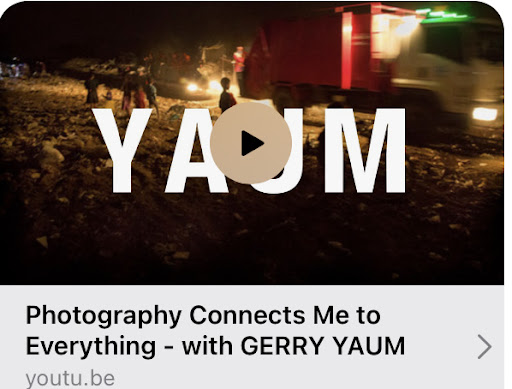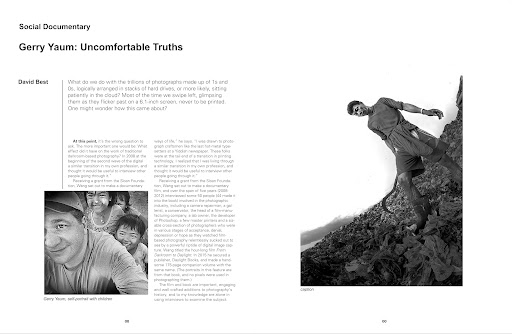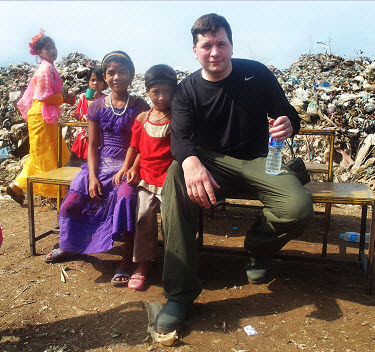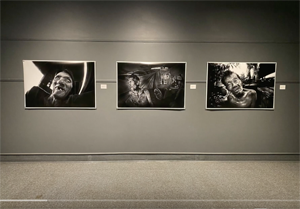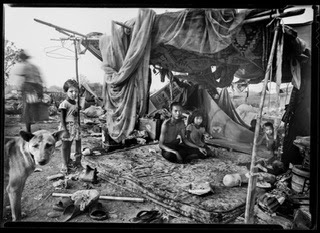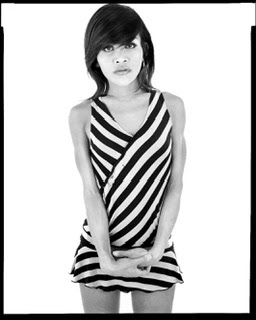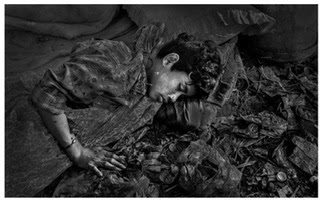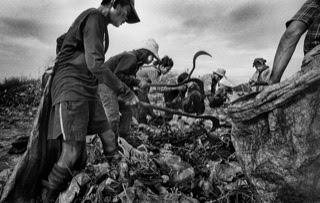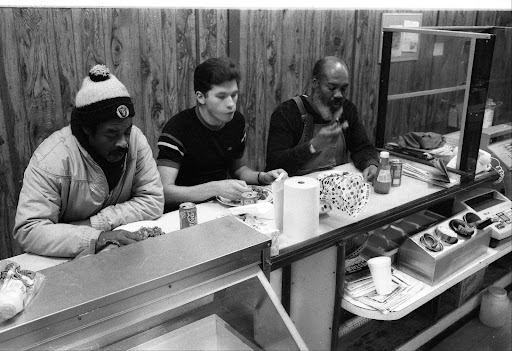Stuart Franklin
The world that I grew up in will be, from today, a poorer place. It is with great sadness I have to write that Philip - a monumental, irrepressible force in photography and in life - and a courageous fighter against the cancer that finally defeated him - passed away early this morning.
Philip's passing is an enormous loss to us all at Magnum, and I am sure to everyone who knew him. It was a privilege to have brushed, even lightly, against his charm, his brilliance and his passion for photojournalism. Those who only know him through his work will have missed his skills as an orator, raconteur, wit and polemicist. He remained the lovely man that he was - graceful and welcoming - especially to young people trying to make a start in photography. He had much to pass on, not just about the importance of "real" photography, but about the art and craft of picture-making.
Philip was born in Rhuddlan, near Rhyl in Wales on 18th February 1936 and it was there, at the age of 16, that he learnt an early lesson about photography - from Henri Cartier-Bresson: "The first picture of his I ever saw was during a lecture at the Rhyl camera club. I was 16 and the speaker was Emrys Jones. He projected the picture upside down. Deliberately, to disregard the subject matter to reveal the composition. It's a lesson I've never forgotten."
It was Philip's consummate skill as a picture maker, carefully able to draw the viewer closer and closer to his subjects through his emotionally-charged compositions that lent such power to his work. Philip was always concerned with individuals - their personal and intimate suffering more than any particular class or ideological struggle. And the strength of his vision, that inspired so many of us, led Henri Cartier-Bresson to write of Philip: "not since Goya has anyone portrayed war like Philip Jones Griffiths."
Philip's iconic work on the Vietnam War, an unprecedented work, published in 1971 under the title 'Vietnam Inc.' is arguably the most articulate and compelling anti-war statement made by any photojournalist ever. Indeed it led Noam Chomsky to comment that: "If anybody in Washington had read that book, we wouldn't have had these wars in Iraq or Afghanistan".
Indeed, it was Philip's passion for peace that led to greatness in his later work. In 2005 he published "Viet Nam at Peace" a 25 year study exploring the long term consequences of the war. The first Westerner to travel by road from Hanoi to Ho Chi Minh City after the war, and later the Ho Chi Minh trail, he amassed an unparalleled photographic record of the post-war transformation of this country.
Thoroughly industrious and tenacious to the end, Philip had just completed a new book of his less known studies of British life in the 1950s, 60s and 70s, entitled 'Recollections', and in the last few weeks before his death, Philip became thoroughly engaged in compiling his life's work documenting Cambodia.
Philip enriched all our lives with his courage, his empathy, his passion, his wit and his wisdom; and for many he gave to photojournalism its moral soul. He died as he wanted so passionately that we should live - in peace. In his last days he was together with his loving family and friends at his side.
He leaves behind his loving family, Fanny Ferrato, Katherine Holden, Donna Ferrato and Heather Holden.
skip to main |
skip to sidebar
I have been thinking of why I love photography, it comes down to something I have labeled "The Three Joys"
1) Creativity
The first joy is simply creating the work. Everything about the making of photographs I love. The initial ideas, the writing on the blog, the preparation of equipment, the research into my subjects, figuring out what I want to communicate. The camera tech stuff like composition, lens selection, cameras, figuring exposure, taking the shot etc. The post darkroom work where you swim with your prints bringing them slowly to life, creating something powerful and beautiful. I love it all.
It is so powerful a thing, you have a idea in your mind, there is nothing else, then YOU make it, you create it, it's fricking awesome stuff.
2) The People
The second joy is that photography has allowed me a way into so many peoples lives, so many different worlds. I get to meet people of all types, speak to them, eat with them, cry and laugh with them. For a while I get to live their existence to be them if you will.
I get to be a child in a slum in Bangkok or a drug addict in a ghetto in Oakland. I get to be a ladyboy sex worker in Pattaya or a man dying of cancer in Canada. Of course I am not really those people but I get a true flavor for those worlds, those experiences, the good and the bad, the ugly and the beautiful, the joy and the sadness.
With photography I get a chance to live outside of the same same everyday meat and potato lives many of my friends and family live. Because I use a camera and make pictures all the doors to a wonderful life experience are open to me, photography is a window into everything!
3) The Photograph
The third joy is about the feeling you get when you accomplish your goals, when you see your final print in the developer, fix or hanging in a gallery. There is a special emotion there, a true satisfied happiness, something so uniquely rewarding. In the darkroom sometimes when I see the finished photo for the first time as it lays in the fixer tray I will let out hoops of joy. I will scream and shout. It is quite a spectacle! It's just the sheer high of that moment bursting out, the YES moment. When the photo is right and you see it for the first time it's the best feeling in the world, better than anything I have ever felt, the high of highs!!
"Ain't Photography Grand!"
"Ain't Photography Grand!!"
Social Documentary Photography for a Better World!
Search This Blog
Contact Gerry Yaum
contact@gerryyaum.net
Gerry Yaum Interview, FRAMES PHOTOGRAPHY MAGAZINE YouTube Channel
"Black & White" Photography Magazine, Issue #160
BLACK &WHITE Magazine, Layout Feature
CENTRE for BRITISH DOCUMENTARY PHOTOGRAPHY, CBDP
St. Albert Gazette MY FATHERS LAST DAYS Story
Me, W. Eugene Smith, Sebastiao Salgado, Lewis Hine and Walker Evans! :) NOT!!!
LUNCHBOX Radio Interview FOR UNB EXHIBITIONS
MONEY EARNED TO HELP THE PEOPLE IN THE PICTURES
Money that will be used to directly help the people in our two photography projects, THE FAMILIES OF THE DUM and THE PEOPLE WHO LIVE UNDER THE FREEWAY $6334.67 ($6000 earned when 6 prints were added to the UNB permanent collection).
GOFUNDME, FAMILES/FREEWAY
Trying to raise $2000 to help the people under the freeway, and the families of the dump. TOTAL RAISED SO FAR = $325 —->$314.67 (after GOFUNDME fees).
UNIVERSITY OF NEW BRUNSWICK EXHIBITIONS VIDEO
Analog Forever Magazine
Vernon Morning Star Newspaper Story
2022 "Families of the Dump"/The People Who Live Under The Freeway Donation Buys
Total donation money spent for the 2022 trip to the Mae Sot dump (THE FAMILIES OF THE DUMP), Bangkok's Klong Toey Slum (THE PEOPLE WHO LIVE UNDER THE FREEWAY). Money spent on "The Families of the Dump" = $571.17 CAD (14982 Thai Baht) Money spent on "The People Who Live Under The Freeway = $144 CAD (3849 Thai Baht) General cases where money was spent to help others in need $15 CAD (401baht)
(Thai Currency) or
CAD
"Families of the Dump" Donation Total
$4420.02 CAD
GERRY YAUM: YouTube Video PHOTOGRAPHY CHANNEL
THE GOAL
To create photographs that speak to the universality, the commonality and the shared humanity of all peoples, regardless of country, race, culture or language.
TRANSLATE YAUM'S PHOTO DIARY INTO YOUR LANGUAGE
Quote: Robert F. Kennedy
“The purpose of life is to contribute in some way to making things better.”
Quote: Nelson Mandela
"As long as poverty, injustice and gross inequality persist in our world, none of us can truly rest."
Quote: Weegee (Authur Fellig)
"Be original and develop your own style, but don't forget above anything and everything else...be human...think...feel. When you find yourself beginning to feel a bond between yourself and the people you photograph, when you laugh and cry with their laughter and tears, you will know your on the right track....Good luck."
Blog Archive
-
▼
2008
(236)
-
▼
May
(27)
- Daily Polaroids Detail Last 18 Years of NYC Man's ...
- Photo Story: Dying Street Lady Bangkok, Thailand 1999
- 10 Print Portfolio Boxes
- Review: VAAA Open Photo 2008
- Straight Forward Honesty in Portraiture
- Got to Get the Old Stuff Developed
- Collected
- Wish We had shows like this in Edmonton
- Haunting Image
- Where the Yaum in Gerry Came From
- Quote: Henri Cartier-Bresson
- Quote: Ansel Adams
- More Youtube Photographer Videos
- Quote: Edward Weston
- Youtube Photographer Vids
- Photographing this Week
- Bellocq's Woman from the New York Review of Books
- EJ Bellocq
- Philip Jones Griffiths 1936-2008
- Quote: Fred Astaire
- Overweight Nude to Set Record
- Quote: Henry de Toulouse-Lautrec
- Collected
- Ladyboy
- Quote: Diane Arbus
- Contact Photo Festival
- Bananarama in Hand
-
▼
May
(27)
Total Pageviews
The Three Joys Of Photography
The Three Joys
1) Creativity
The first joy is simply creating the work. Everything about the making of photographs I love. The initial ideas, the writing on the blog, the preparation of equipment, the research into my subjects, figuring out what I want to communicate. The camera tech stuff like composition, lens selection, cameras, figuring exposure, taking the shot etc. The post darkroom work where you swim with your prints bringing them slowly to life, creating something powerful and beautiful. I love it all.
It is so powerful a thing, you have a idea in your mind, there is nothing else, then YOU make it, you create it, it's fricking awesome stuff.
2) The People
The second joy is that photography has allowed me a way into so many peoples lives, so many different worlds. I get to meet people of all types, speak to them, eat with them, cry and laugh with them. For a while I get to live their existence to be them if you will.
I get to be a child in a slum in Bangkok or a drug addict in a ghetto in Oakland. I get to be a ladyboy sex worker in Pattaya or a man dying of cancer in Canada. Of course I am not really those people but I get a true flavor for those worlds, those experiences, the good and the bad, the ugly and the beautiful, the joy and the sadness.
With photography I get a chance to live outside of the same same everyday meat and potato lives many of my friends and family live. Because I use a camera and make pictures all the doors to a wonderful life experience are open to me, photography is a window into everything!
3) The Photograph
The third joy is about the feeling you get when you accomplish your goals, when you see your final print in the developer, fix or hanging in a gallery. There is a special emotion there, a true satisfied happiness, something so uniquely rewarding. In the darkroom sometimes when I see the finished photo for the first time as it lays in the fixer tray I will let out hoops of joy. I will scream and shout. It is quite a spectacle! It's just the sheer high of that moment bursting out, the YES moment. When the photo is right and you see it for the first time it's the best feeling in the world, better than anything I have ever felt, the high of highs!!
"Ain't Photography Grand!"
Contact Gerry
- Gerry Yaum
- Edmonton, Alberta, Canada
- Email Gerry: gerryyaum@gmail.com
"Can a photograph stop a war? Can it save a life? Can it lead to understanding, inspire someone to help, provide comfort and open the door to compassion?
Hope that it can.
Pray that it can."
Hope that it can.
Pray that it can."



